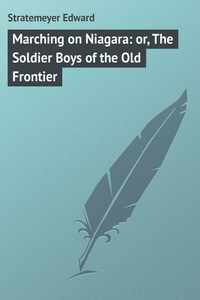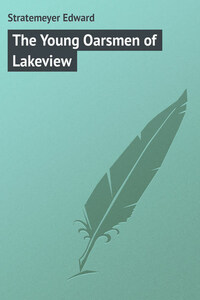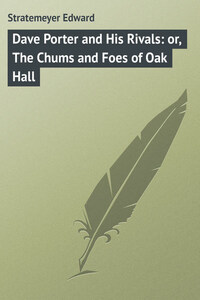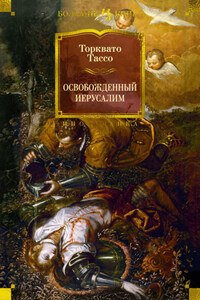"Marching on Niagara" is a complete story in itself, but forms the second of several volumes to be known by the general title of "Colonial Series."
In the first volume of this series, entitled "With Washington in the West," we followed the fortunes of David Morris, the son of a hardy pioneer, who first settled at Will's Creek (now the town of Cumberland, Virginia), and later on established a trading post on one of the tributaries of the Ohio River. This was just previous to the breaking out of war between France and England, and when the French and English settlers in America, especially in those localities where trading with the Indians was profitable, were bitter foes. David becomes well acquainted with Washington while the latter is a surveyor, and when Braddock arrives in America and marches against Fort Duquesne the young pioneer shoulders a musket and joins the Virginia Rangers under Major Washington, to march forth and take part in Braddock's bitter defeat and Washington's masterly effort to save the remnant of the army from total annihilation.
The defeat of the British forces left this section of the English colonies at the mercy of both the French and their savage Indian allies, and for two years, despite all that Washington and other colonial leaders could do, every isolated cabin and every small settlement west of Winchester was in constant danger, and numerous raids were made, savage and brutal in the extreme, and these were kept up until the arrival of General Forbes, who, aided by Washington and others, finally compelled the French to abandon Fort Duquesne, and thus restored peace and order to a frontier covering a distance of several hundred miles.
Following General Forbes's success at Fort Duquesne (now the enterprising city of Pittsburg), came English successes in other quarters, not the least of which was the capture of Fort Niagara, standing on the east bank of the Niagara River, where that stream flows into Lake Ontario. This fort was of vast importance to the French, for it guarded the way through the lakes and down the mighty Mississippi to their Louisiana territory. In the expedition against Fort Niagara both David and Henry Morris take an active part, and as brave young soldiers endeavor to do their duty fully and fearlessly.
In the preparation of the historical portions of this work the author has endeavored to be as accurate as possible. This has been no easy task, for upon many points American, English, and French historians have differed greatly in their statements. However, it is hoped that the tale is at least as accurate as the average history, giving as it does statements from all sides.
Again thanking the many readers who have taken such an interest in my previous works, I place this volume in their hands, trusting they will find it not only entertaining but likewise full of instruction and inspiration.
Edward Stratemeyer.
Independence Day, 1902.
"Do you think we'll bag a deer to-day, Henry?"
"I'll tell you better about that when we are on our way home, Dave. I certainly saw the hoof-prints down by the salt lick this morning. That proves they can't be far off. My idea is that at least three deer are just beyond the lower creek, although I may be mistaken."
"I'd like to get a shot at 'em. I haven't brought down a deer since we left the army."
"Well, I reckon we had shooting enough in the army to last us for a while," returned Henry Morris, grimly. "I know I got all I wanted, and you got a good deal more."
"But it wasn't the right kind of shooting, Henry. I always hated to think of firing on another human being, didn't you?"
"Oh, I didn't mind shooting at the Indians – some of 'em don't seem to be more than half human anyway. But I must say it was different when it came to bringing down a Frenchman with his spick and span uniform. But the Frenchmen hadn't any right to molest us and drive your father out of his trading post."
"I'm afraid General Braddock's defeat will cause us lots of trouble in the future. Mr. Risley was telling me that he had heard the Indians over at Plum Valley were as impudent as they could be. He said half a dozen of 'em made a settler named Hochstein give 'em all they wanted to eat and drink, and when the German found fault they flourished their tomahawks and told him all the settlers but the French were squaws and that he had better shut up or they'd scalp him and burn down his cabin."
"Yes, Sam Barringford was telling something about that, too, and he said he wouldn't be surprised to hear of an Indian uprising at any time. You see, the French are backing the redskins up in everything and that makes them bold. If I had my way, I'd get Colonel Washington to raise an army of three or four thousand men – the best frontiersmen to be found – and I'd chase every impudent Frenchman out of the country. We won't have peace till that is done, mark my words on it," concluded Henry Morris, emphatically.
David and Henry Morris were cousins, living with their folks on a clearing not far from what was then known as Will's Creek, now the town of Cumberland, Virginia. The two families consisted of Dave and his father, Mr. James Morris, who was a widower, and Mr. Joseph Morris, his wife Lucy, and three children, Rodney, the oldest, who was something of a cripple, Henry, who has just been introduced, and little Nell, the sunshine of the whole home.














